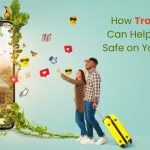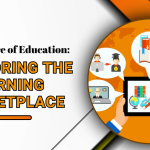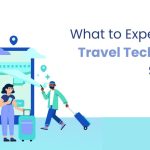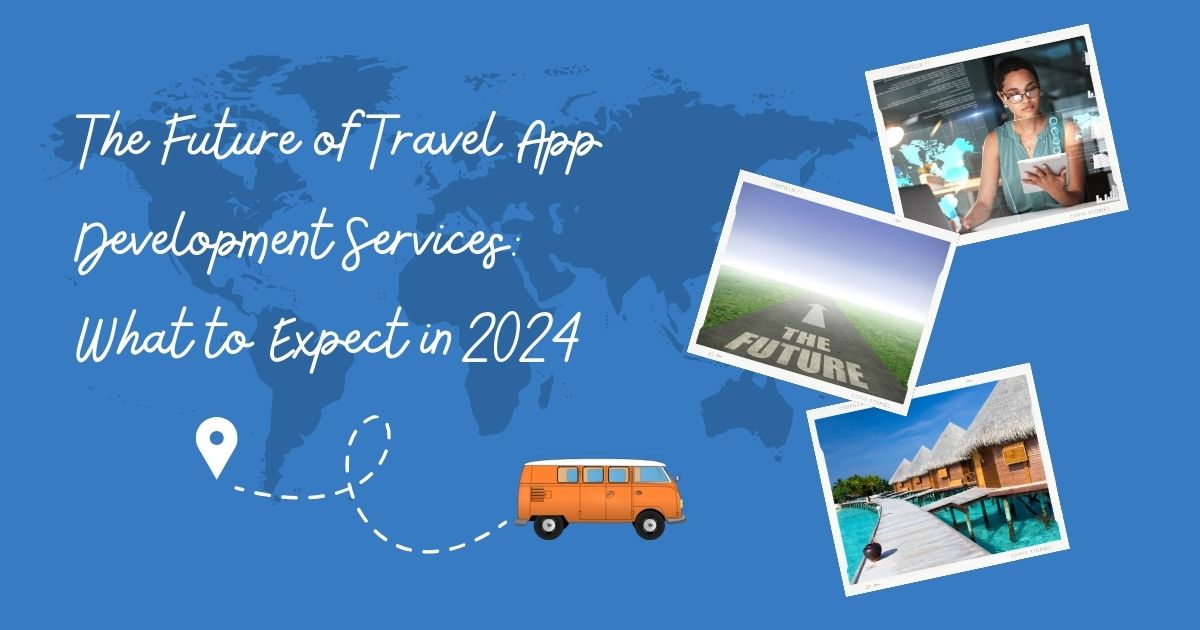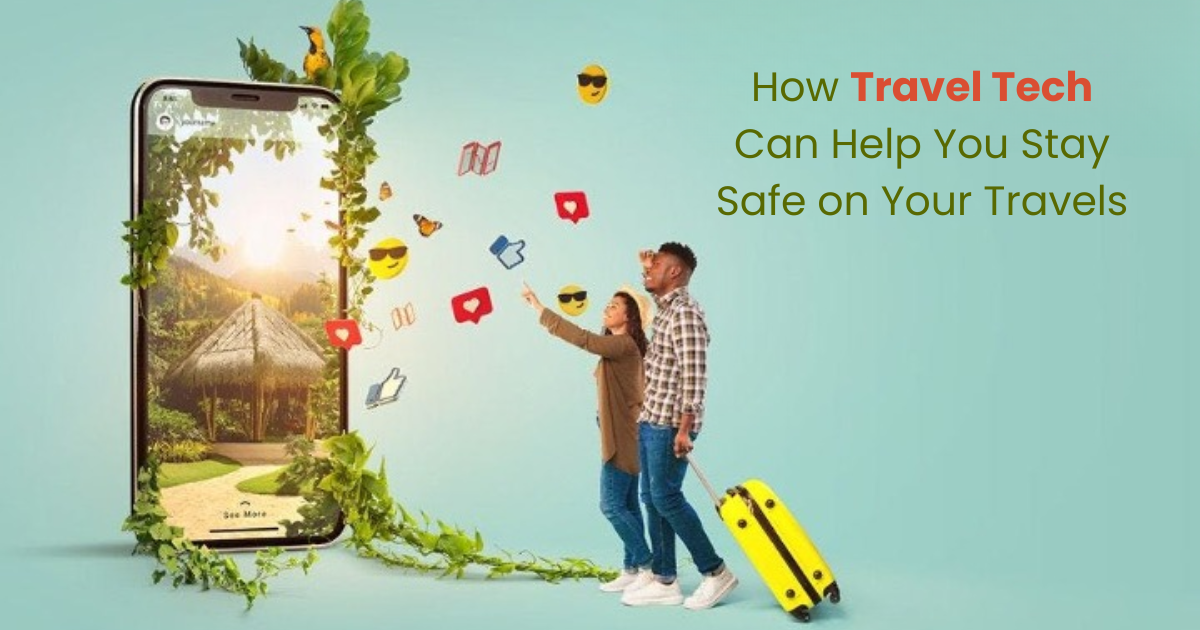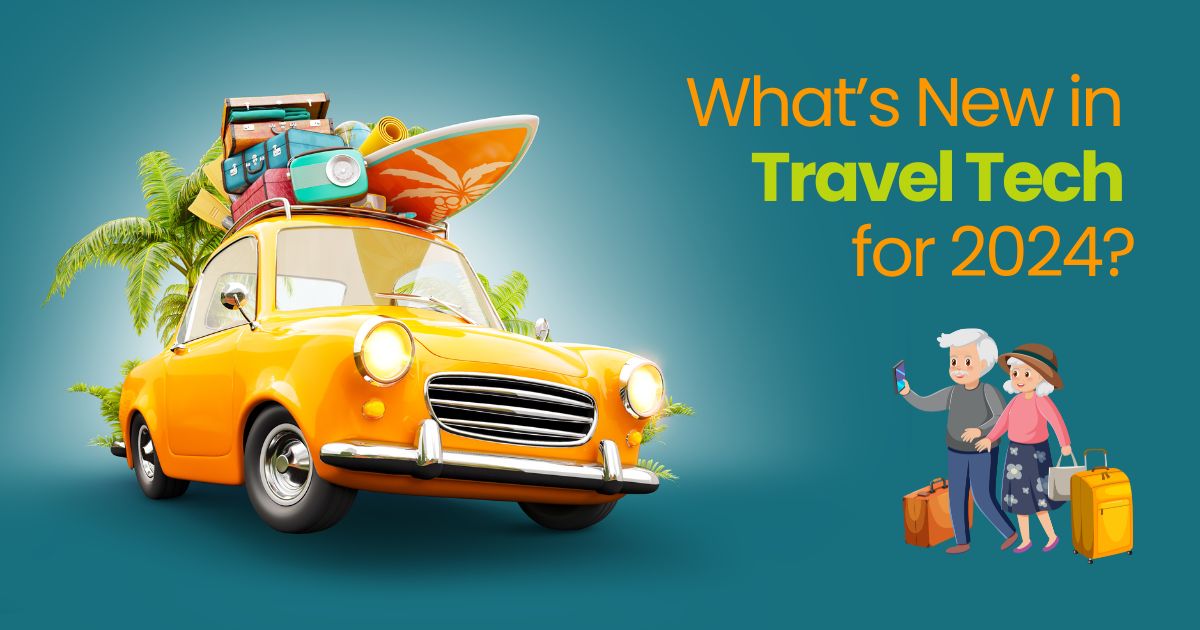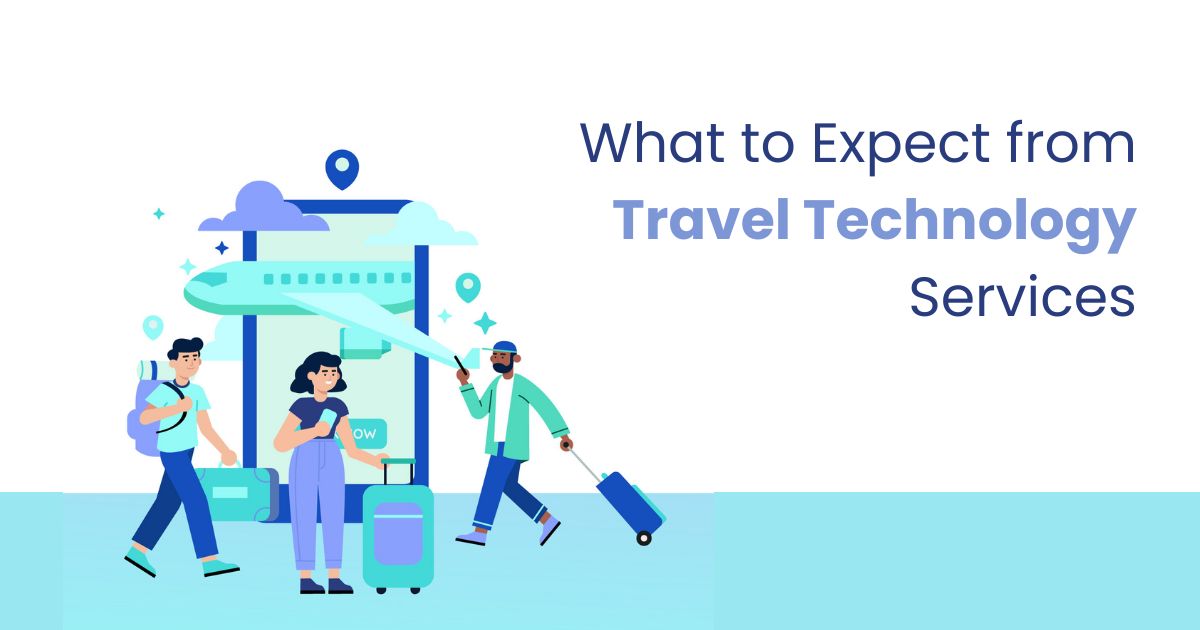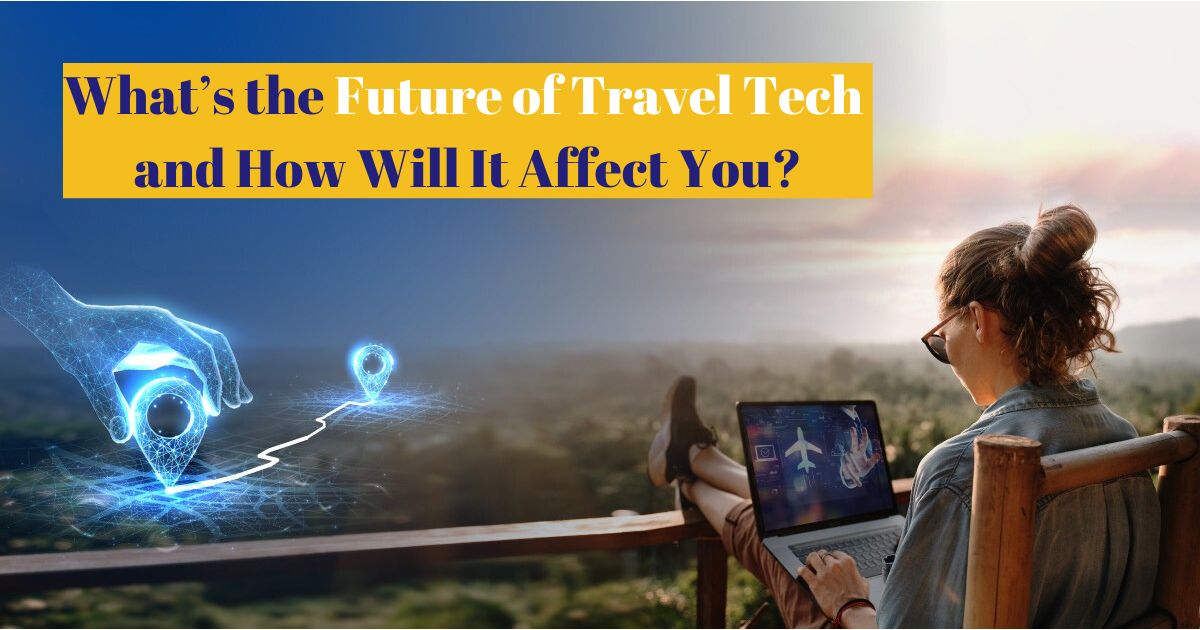The travel industry is expected to undergo major changes in 2024 as a result of shifting customer tastes and technological breakthroughs. With their creative approaches to improving the travel experience, travel app development services will be essential in forming these developments. This article explores the major themes, innovations, and technological advancements that are anticipated to shape the travel app development industry in 2024.
Travel Technology Solutions: Enhancing Your Travel Journey with Advanced Technology SolutionsThe travel industry is on the cusp of a digital revolution, with travel app development services at the forefront of this transformation. As travelers increasingly rely on mobile applications for planning, booking, and managing their trips, the demand for innovative and user-friendly travel apps continues to rise. In 2024, travel app developers will need to leverage cutting-edge technologies and trends to meet the evolving needs of travelers and provide exceptional experiences.
The Role of AI and Machine Learning
AI-Powered Personalization
Artificial Intelligence (AI) and Machine Learning (ML) are set to revolutionize travel app development by enabling highly personalized user experiences. AI algorithms can analyze user behavior, preferences, and past travel patterns to offer tailored recommendations for destinations, accommodations, activities, and dining options.
- Example: An AI-powered travel app can suggest a personalized itinerary based on a user’s travel history and preferences, such as recommending less crowded tourist spots for an introverted traveler.
Predictive Analytics for Travel Planning
Predictive analytics, powered by AI and ML, can forecast travel trends and help users make informed decisions. By analyzing vast amounts of data, travel apps can predict flight prices, hotel availability, and even weather conditions, enabling travelers to plan their trips more effectively.
- Example: A travel app can notify users when it is the best time to book flights to get the lowest fares, based on historical data and current trends.
Augmented Reality (AR) and Virtual Reality (VR)
Enhancing User Experience with AR
Augmented Reality (AR) technology can enhance the travel experience by providing interactive and immersive content. Travel apps can use AR to overlay information on real-world environments, such as displaying historical facts about landmarks or guiding users through airports.
- Example: An AR-enabled travel app can offer an interactive city tour, where users can point their smartphones at landmarks to receive detailed information and multimedia content.
Virtual Tours and Destination Previews
Virtual Reality (VR) allows travelers to explore destinations virtually before making a decision. Travel apps can provide VR tours of hotels, attractions, and even entire cities, helping users make more informed choices.
- Example: A travel app can offer a virtual tour of a hotel room, allowing users to experience the room’s layout, amenities, and view before booking.
Blockchain Technology in Travel Apps
Secure Transactions and Payments
Blockchain technology offers enhanced security for transactions and payments within travel apps. By leveraging blockchain’s decentralized and immutable ledger, travel apps can ensure secure and transparent transactions, reducing the risk of fraud.
- Example: A travel app can use blockchain to securely process payments for flights, hotels, and tours, providing users with a tamper-proof transaction history.
Decentralized Identity Verification
Blockchain can also be used for decentralized identity verification, allowing travelers to securely share their identification documents without the risk of data breaches. This technology can streamline the check-in process at airports, hotels, and car rental services.
- Example: A travel app can use blockchain to verify a user’s identity, enabling a seamless and secure check-in experience at hotels.
Integration of Internet of Things (IoT)
Smart Luggage and Tracking
The Internet of Things (IoT) enables the development of smart luggage equipped with GPS tracking, weight sensors, and remote locking mechanisms. Travel apps can integrate with these smart devices to provide real-time tracking and alerts, ensuring a smooth travel experience.
- Example: A travel app can notify users if their luggage has been tampered with or if it is being delivered to the wrong location.
Connected Travel Ecosystems
IoT can create a connected travel ecosystem where various devices and services communicate with each other. Travel apps can integrate with smart hotels, airports, and transportation systems to offer a seamless and interconnected experience.
- Example: A travel app can sync with a smart hotel room to allow users to control room settings, such as temperature and lighting, directly from their smartphones.
Sustainability and Eco-Friendly Travel
Apps Promoting Sustainable Travel Choices
As environmental concerns grow, travelers are becoming more conscious of their carbon footprint. Travel apps can promote sustainable travel choices by highlighting eco-friendly accommodations, transportation options, and activities.
- Example: A travel app can feature a filter for eco-friendly hotels that use renewable energy sources and have sustainable practices.
Carbon Footprint Tracking
Travel apps can help users track their carbon footprint by calculating the environmental impact of their travel choices. This feature can raise awareness and encourage more sustainable behaviors among travelers.
- Example: A travel app can provide a summary of a user’s carbon footprint for a trip, suggesting alternative options to reduce their environmental impact.
Advanced User Interfaces and User Experience (UI/UX)
Voice-Activated Assistants
Voice-activated assistants, powered by AI, are becoming increasingly popular in travel apps. These assistants can help users perform tasks such as booking flights, checking flight status, and finding nearby attractions using voice commands.
- Example: A travel app with a voice-activated assistant can allow users to book a flight by simply saying, “Book a flight to New York for next Monday.”
Intuitive and Adaptive UI Designs
Travel apps in 2024 will focus on providing intuitive and adaptive user interfaces that cater to individual user preferences. These apps will employ responsive designs and adaptive layouts to ensure a seamless experience across different devices.
- Example: A travel app can adjust its layout and functionality based on whether the user is on a smartphone, tablet, or desktop, providing an optimized experience for each device.
Hyper-Personalization and Customer Engagement
Real-Time Customer Support
Real-time customer support is crucial for enhancing the travel experience. Travel apps can integrate chatbots and live chat features to provide instant assistance and resolve issues promptly.
- Example: A travel app can offer 24/7 customer support through a chatbot that can handle common inquiries, such as booking changes and flight delays.
Personalized Travel Itineraries
Hyper-personalization involves creating highly customized travel itineraries based on user preferences, behaviors, and feedback. Travel apps can leverage AI and data analytics to curate personalized itineraries that match individual interests and needs.
- Example: A travel app can generate a personalized itinerary for a user interested in culinary experiences, including recommendations for food tours, restaurants, and local markets.
Mobile Payment Solutions and Digital Wallets
Seamless In-App Transactions
Mobile payment solutions and digital wallets will become integral to travel apps, allowing users to make seamless in-app transactions. This integration will enable users to book flights, accommodations, and activities without leaving the app.
- Example: A travel app can integrate with digital wallets like Apple Pay and Google Wallet to facilitate quick and secure payments for bookings.
Cryptocurrency Integration
As cryptocurrency adoption grows, travel apps will begin to accept cryptocurrencies as a payment method. This feature will appeal to tech-savvy travelers who prefer using digital currencies for their transactions.
- Example: A travel app can allow users to pay for hotel bookings and flights using popular cryptocurrencies like Bitcoin and Ethereum.
Data Security and Privacy
Robust Security Measures
Ensuring data security and privacy is paramount for travel apps. Developers will implement robust security measures, including encryption, secure authentication, and regular security audits, to protect user data from cyber threats.
- Example: A travel app can use end-to-end encryption to secure user communications and transactions, preventing unauthorized access.
Compliance with Global Data Regulations
Travel apps must comply with global data regulations, such as the General Data Protection Regulation (GDPR) in Europe and the California Consumer Privacy Act (CCPA) in the United States. Adherence to these regulations will ensure that user data is handled responsibly and transparently.
- Example: A travel app can provide users with clear privacy policies and options to manage their data, in compliance with GDPR and CCPA requirements.
Conclusion
The future of travel app development services in 2024 is characterized by technological innovation, personalization, and a focus on sustainability. As AI, AR, VR, blockchain, and IoT continue to advance, travel apps will offer increasingly sophisticated and seamless experiences for users. By prioritizing data security, user engagement, and eco-friendly practices, travel app developers can meet the evolving demands of travelers and shape the future of the travel industry. The key to success will be staying ahead of technological trends and continuously adapting to the changing landscape of travel.
